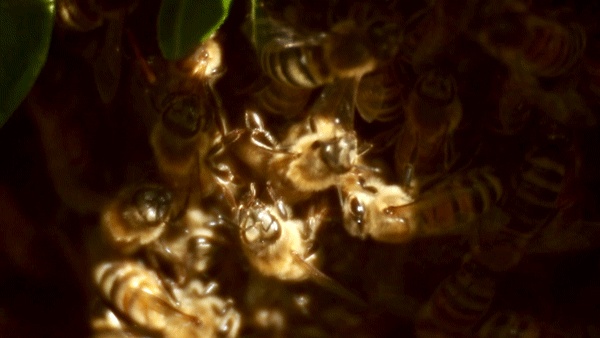
Gregg McMahan is more than one of Denver's top authorities on bees. He's also insanely in love with them and has studied bee biology extensively.
When a hive representing one of Colorado's 800+ species needs a little human intervention, McMahan and his colleagues at the Colorado State Beekeepers Association are fast to help out. They are especially needed this time of year, swarm season, when hives' populations split and tens of thousands of bees congregate in a single place as they find a new home for the year.
Earlier this year we reported that the Denver Botanic Gardens has been studying their extensive library of flowers and have determined that blooms are indeed occurring sooner than they did decades ago. As plants respond to rising global temperature averages, so do the insects that depend upon them.
McMahan says he's observed Colorado's bees swarming up to a full month earlier than they did when he decided to become a bee guru ten years ago.

But that's not necessarily a bad thing. Colorado's bees could take advantage of a longer season if there's enough food to go around. McMahan says there's less pollen available each year, but he's encouraged that Denverites have taken notice of the need for pollinator-friendly spaces near the city.
His advice to folks hoping to help the bees? Plant flowers that bloom into autumn so they have something to sustain them into winter.
As for spring assistance? Call the Colorado State Beekeepers Association's Swarm Hotline to remove an unwanted infestation that may make its home in your yard. They'll help the hive move on to a safe place as they find a new home for the summer.












